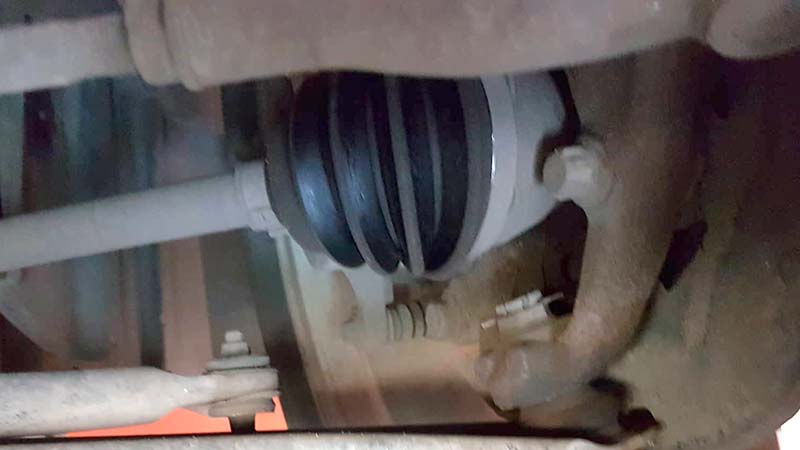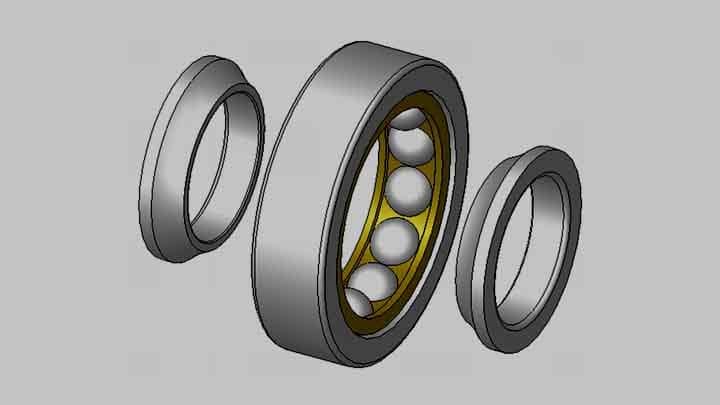Last Updated on May 8, 2021 by themechanic

Front-wheel drive vehicles have constant-velocity (CV) joints attached to the ends of their driveshafts. The driveshaft, of course, is what transmits torque (mechanical power) from the internal combustion engine to the wheels underneath the vehicle.
The CV joints serve two essential purposes. First, the CV joints secure the driveshaft and keep it stable in one place. This ensures the driving experience will be much smoother without a lot of noises from the suspension system. Second, the CV joints assist the engine and transmission in rotating the wheels after the driver steps on the gas pedal.
If you have failing CV joints, you’ll hear a popping sound underneath the vehicle as you attempt to shift gears or make turns. If the condition gets worse, your vehicle will have difficulties moving correctly. Please don’t wait to fix the problem because it could cause severe damage to your engine once the CV joints break.
The Top 4 Causes
Do you notice strange noises when you make turns or drive straight? If so, then you probably have a CV joint problem that needs to be fixed or replaced. It is essential to understand the causes of these CV joint noises so that you can determine whether the joints can be fixed or not. That way, you won’t always have to spend more money on replacing the CV joints.
Below are the top 4 causes of CV joint noises in your car.
1) Bad CV Boot Clamps
Boot clamps are used to secure and seal the boots of your CV joints. Sometimes the boot clamps will suffer damage after several years of use. This increases the risk of debris accumulating inside the CV joints because the joints will loosen when the clamps are damaged. If debris gets inside of the joints, it will cause all kinds of clunking noises to occur.
2) Damaged CV Boots
Most people who experience CV joint noises in their vehicle will have a problem with the CV boots. If the boots get damaged, it will cause lots of debris and grease to enter the CV joints. Once that happens, it won’t take long before the CV joints start to wear themselves out. That is when you will hear noises coming from the CV joints.
If you don’t fix the CV joints, the noises will only grow louder as you continue to accelerate your vehicle. High speeds and sharp turns will damage your CV joints even further. Then you’ll have no choice but to replace them.
3) Wear and Tear
Old age can take its toll on the axles and joints. When the CV joints are old and worn out from years of wear and tear, you will start to hear steering noises. Do not assume CV joints have a lifetime guarantee because they do not. CV joints can wear out after about five years if you drive regularly.
4) Low Level of Lubrication
CV joints must get lubricated thoroughly to stay functional and noiseless. If you hear noises from your CV joints, it could just mean that they have not been properly lubricated. Either there is not enough lubrication or poor-quality lubricant was used on the joints. As you increase your driving speed, the noises will grow louder.
Read also:
- Top 7 Best 3+ Ton Floor Jack for Lifted Trucks under $200
- Top 10 Best Weight Distribution Hitches for Travel Trailer With Sway Control
- Top 10 Best Replacement Lower Arm Brands for Your Car
Tips on How to Fix
The first step is to conduct a visual inspection of the CV joints and suspension system. Loosen the lug nuts and raise the car into the air with a car lift or jack so that you can work underneath it. If the CV boot is damaged but not the CV joints, you can salvage the CV joints. Just replace the boots and add lubricant or grease to the CV joints. The noises should go away after that.
If the CV joints are damaged, then you must replace them with new CV joints. You should use a professional mechanic to perform this task if you don’t have experience with auto mechanical work.


